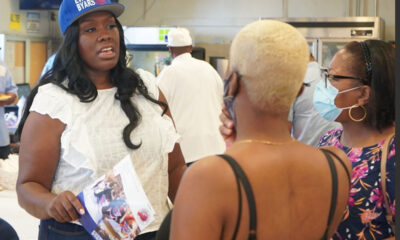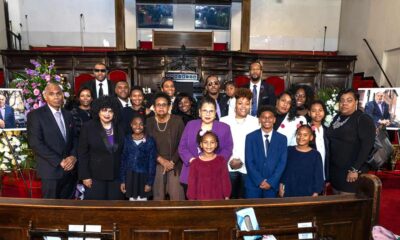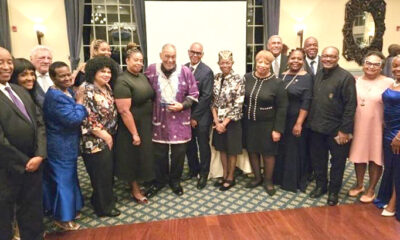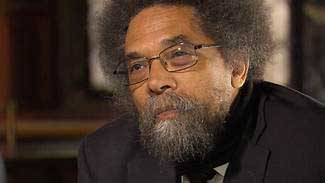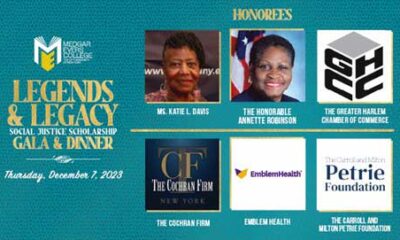featured
Harry Belafonte Speaks Truth to Power in Honor of Medgar Evers at the 40th Anniversaryof the College Founded in His Name
Dr. and Mrs. Pollard, let me start off by expressing my sincere sense of gratitude and privilege in sharing this evening with you, the alumni, elected officials, particularly all the Caribbeans in the room. I am honored to be gained this honor in the name of a man I’ve known, shared many precious moments with, although they were not long. Not enduring. The work that I do takes me into the midst of the criminal culture. In this country which possesses the largest prison population in the world, over two million. Most of the young men and women who languish in those prisons are men and women of color. I’ve had occasion to consider Nelson Mandela. I had interviewed him for a film that I had done, and it was just two days ago we did the final edit and it will be released soon. It’s going its way through the festival routine and will be released soon. The film is called Sing your Song, based on a quote by a man whom I revered and who was my mentor, Paul Robeson. Mr. Robeson came to visit myself and a group of young artists at the American Negro Theater at the Schomburg Library and he came to see us perform in a play called Juno and the Paycock written by the great Irish playwright Sean O’Casey. In the group was Ossie Davis, Ruby Dee and Sidney Poitier, all young people not knowing quite where we were going to wind up, but we knew where we wanted to go. Paul came to visit us and spend time. From that moment to the end of his life, I served him and revered him, he was my mentor. When he came to see me after my first performance, he smiled and he said, “When they hear you sing your song, they’ll want to know who you are”. I did not know what a metaphor was until one day I woke up and found the whole world singing “Day-O.” (Audience laughs and starts to sing a few bars.)But you’ve heard nothing until you’ve stood and watched 50,000 Japanese singing it.It was through moments like that, that I understood the power of the metaphor. If you sing your song, they will want to know who you are.Thank you again Paul, Mr. Robeson, for what you did for my heart and soul and sense of purpose.….On Nelson Mandela’s first visit to America I was anointed with the privilege of arranging every aspect of what he would do and who he would meet during his stay in America. As an agent for the ANC, as a worker for the African National Congress. The first place he stopped when he came here, and I met him at the airport, wasn’t even on the schedule. It was Boys and Girls High. It wasn’t on the schedule and I knew that Oliver Tambo and others had looked at the schedule and approved it, but I have to make a stop, I said I had made a promise to a couple of students that I would take you by there, and the first stop was Boys and Girls High. In our discussion we came to the subject of the young and whether or not we had fulfilled the promise in the goals of acceptance. And it was a serious thing because he says, “had we done the things we were supposed to do, perhaps our young people would not be so lost”. Somewhere along the line, we blinked. Somewhere along the line, we got caught up in the immediacy of our successes, and did not keep our eye on the long-term goal. And in that space the corruptors stepped in and grabbed at us, keeping us from what we were trying to achieve. Now we find ourselves here today in the midst of one of the greatest crises of my lifetime. I don’t know of any time more critical than this very moment is. We are just a few steps away from the Fascists. A few steps away from totalitarianism. If they succeed, there will be no place for us to go to find retreat. It will be a doomsday scenario.The Tea Party? It’s no question what they say, it’s about race. It’s about race. You can fill the airways, fill the newspapers, with your elusive talk about issues that don’t hardly exist, but it’s all about race. And I no longer participate in the wasteful debate about whether or not Barack Obama has made or not made the right decision, what’s infinitely more important is what we’re failing to do. It’s where we are and what we have not done and are not doing that is making the difference. And it started long before Barack Obama. You go to Katrina and take a look at the hundreds of thousands of Black people in anguish in that place, where was America’s Black voice? Where was the ardor of Black citizens rising up to say all will be well, we will prevail. We failed and we continue to fail because the people of Katrina still languish in misery and pain while we all sit and wine and dine, frustrated in the comfortable lives we’re living. We have failed. In that failure sits the reason Barack Obama has not moved further forward. Of course. I have a lot of complaints and I can take you to the mat on what he should be doing, but more importantly, what I have to keep in mind is that Barack Obama is ours.I remember also another mentor, a woman, Eleanor Roosevelt. I sat with Mrs. Roosevelt one night because she wanted to do something for Africa in a most profound way, not just in title, but in substance. She cuddled and befriended and helped inspire dozens and dozens and dozens of young African revolutionaries who came to this country to find hope and to find promise. While she was at the United Nations writing the Charter of the Universal Declaration of Human Rights which is quoted so often today, in her midst are large numbers of young Africans aspiring to overcome colonialists. And through her I got to meet Winnie (Mandela). She once told me the story, which is not said by a lot of people, about A. Philip Randolph. And how she wanted Franklin Delano Roosevelt to meet this man. And when she got him into the White House, Franklin Roosevelt invited him into the Oval Office and opened him to say anything on his mind and in his heart. And A. Philip Randolph seized the moment brilliantly. As he talked on, giving room for the president to say what he wanted, but the president encouraged him to speak even more. He said all he needed to say, or wanted to say or could say at that time, about how Blacks were treated, about what’s going on with Black workers, et cetera, et cetera, et cetera. At the end of the conversation, waiting for the coffee, Franklin Delano Roosevelt had a box of cigars and he was passing them around the room. He offered A. Philip to take one, and they proceeded to light up, the president said I have one response to what you told me. I heard everything you said about the conditions of Negro people and the way in which the nation struggles with itself, and you’re right, I do have a bully pulpit, and a place from which to speak and do things, but I tell you, as much as I understand that and know what I should do for you, I have request of you, that is that you go out and make me do it.”
The importance of that remark, and I understood it because not too many months later what A. Philip Randolph did to call the first national railway strike, and that strike turned America around. Franklin Delano Roosevelt could then say to Congress, the nation does not move unless we settle the grievances with our people, with our nation. Huge advances were made as a result of that act. In that quiet conversation after dinner. I look at Barack Obama and I say, “We’re not making enough noise in our streets. We’re not giving you enough to run on. The election when we voted for you, that political and emotional power has not been revealing itself Those who are making the most noise are getting your attention. The Tea Party. All that they do, all this stuff that they do bouncing around the room. It’s all distractions. Black people are just not speaking loud enough in our battle. Pushing the agenda, making our presence respected at the table. Doing what he has to do. We have failed, and are still failing. And it is up to us to change that paradigm, change that fact”.After we had finished filming I came back to America, and the first thing I saw on television was a little Black child five years old down in Florida, St. Petersburg, being cruelly thrown across the desk in her classroom with three white police officers standing over her. And this child, with terror on her face, was being handcuffed by these white police officers. Five years old. And I was absolutely stunned at the great moral decay in this nation when you have a 5-year-old Black child across a desk in this day and age. And what was her charge? She was unruly in the classroom. What kind of unruly could a 5-year-old Black child be to cause police officers to step in the classroom to handcuff her and shackle her, take her to the police station and they didn’t even have a ordinance on the book to book her. I looked at that and I decided it was a kind of vision from a far greater power that was sending me a message. A wake-up. So what I did was I called a gathering of the elders. Everybody that I knew, for whom I’ve done millions of favors, raised money for their elections and all that, I said I’m calling in my chits. Come with me down to Atlanta and let’s talk about the plight of our children. And they all showed up. Farrakhan, Cornel West, Charlie Rangel, you name it, they were there. Two hundred and eighty sat in that room in Atlanta on the patronage of Andy Young and Marion Wright Edelman. And we said let’s talk about our children. Let’s talk about what’s happening to them. And Marion Wright Edelman got up and said, “We’re looking at our new slavery. Our children, from the cradle to the penitentiary, by the hundreds are being incarcerated and punished and we are not awake to this fact.” When she told me that, she said, Farrakhan said his thing and everybody else talked. I looked around the room and understood how burdened these people are. Not so much with themselves with the causes they were pursuing, they were burdened with the maintenance of their positions of privilege. And I said there is something missing. These are my comrades. My allies. These are the people I walked with in the struggle and I love each and every one. But something’s missing. So I called down to Alabama. The Black farmers that I had known from the days of the Movement. I called and said I’ve got a few hundred kids coming from around the country and we need to have some space. Would you house us and feed us and he said yes. These wonderful Black farmers. And we went down to Texas, Alabama. These kids, Crips, Bloods, from all over America. Milwaukee, Chicago, Detroit, Birmingham, they showed up. The first question out of their mouths when we convened was, “What’s the agenda Mr. B?” I said, “The agenda is you. The agenda is to find the agenda. All what you been thinking. All over this nation has experienced something happening with people. Something happening in the community. Where did we miss the boat”? What was Nelson Mandela talking about? Where did we blink? How has it come to this? Well I tell you, he somewhat pontifical, patronizing pontifical and paternalistic that just drives some people up the wall, I know drives me up the wall, I don’t need to hear anymore. I said let’s sit down and find out what you need As we got through talking over the two days, and we found out they didn’t even know each other. They had personal stuff on square one. Let’s talk to each other, let’s really come to grips. And while we’re at it, a point was raised by a visitor, a Mexican guy by the name of Amil Juantez, he said Blacks and Browns are murdering one another and we don’t even know why. And we stand distant from one another. Let’s heal this impasse. I’m in Northern California to sit with the Gladiators, talk with the Mexican gangs and let’s have a chit-chat. So Bloods, Crips, Gladiators talked to one another and found they had a common enemy that they didn’t even recognize or know it. that was sending them to this mutual destruction. And as the meeting went on we said wait a minute. This was not about what happened to the Native Americans— there was thirty-seven million of them at one time. Genocide took them away and we don’t even know them. So we were invited by Onondagans to visit the Indian reservation, to sit among tribal leaders and young people and discuss the issues of Native Americans. And from there we went on down to Okenoochie, among white folks from Virginia, and from Tennessee and from Kentucky. These white kids came down to a retreat at Alex Haley’s farm in Tennessee. These white kids sat with these Black kids and the Indian kids and Hispanic kids. One last time we went to Southern California, among the Pacific Rim. All the people of Asia, the most complicated culture on the face of the earth. We look at Asians in a monolithic way when you get past that monolithic concept, you discover Thailand, very different from Indochina, very different from Cambodia, very different from Vietnam, very different from the Philippines, very different from China and on and on. All speaking different languages and all killing one another in Southern California. So we decided to start a movement called The Gathering. What we did was to sing this song from village to village, hamlet to hamlet, and see if we can have an awakening. See if we can find a general. Because while we were on this train, I said I want to show you something. I got film out of the archives, and I showed them John Lewis at seventeen years of age, and he’s talking to chickens in the backyard trying to be like Dr. King. I showed them Julian Bond, 17. I showed them Diane Nash, 18, and with child. I showed them a litany of leaders. Who were all in their teens, who had taken the forefront of the struggle in this country and reshaped America. Dr. King was 24 when I met him. I was 26. By the time he got on the marches, he was 26 and I was 28 when he called me and he said, “Listen, let’s come together”. In this service everybody was young. Very, very young. Very bright. And very courageous. And shaped America. Now I come to my point.As I look to where these men and women are incarcerated to provide penance and work their way out of the lockup, overcome the forces arrayed against them what we did all over the country is that we began to create new programs for inmates to have college educations. Up in Hudson, New York, lost in the side of a mountain, is Sing Sing prison. In Sing Sing prison, we graduated over two hundred incarcerated men. And we watched interest grow in our program. Forty-two have been released. The return-to-prison rate in the general population is roughly 68%. Out of our program who have been released, not one has gone back. Eight have gone on to get master’s. In trying to reach out to these prisons where I spend most of my time, spend a
lot of my time upstate, and I’m amazed at the genius that sits at these places. Never to be tapped. Never to have longevity of life. Any man or woman who has come from that horror and decided they wanted something more decent in life. That person has a very, very special place in my heart and in my attention. At Sing Sing at a graduation, 38 graduated in that class, the most recent class. When I walked in the room, the scene of family members (Black and Brown), I saw a little patch of white. I wanted to see who that family member was. He came over and introduced himself and said, “Mr. Belafonte, I’ve long wanted to meet you. My name is Warren Buffet.” I said, “Well, Mr. Buffet, I want to tell you the truth. I’ve long wanted to meet you. He had brought his grandson because he had become deeply committed to restructuring the prisons and revitalizing new paradigms, new ways to look at how we treat the largest prison population in the world. He talked about how in California, it is the fastest and biggest-growing industry in that state. The prison industrial complex. They have these laborers locked up in these places, and for a fee these institutions provide detention.The horror story goes on and on and I won’t waste your time with statistics, you can tap into your computers and Google and look if you really want to know.Now I come to the moment and what my real purpose is here today. I was invited to come to Medgar Evers, I really wanted the opportunity. For Betty Shabazz, she and I talked all the time. We talked, exchanged ideas. I’ve been around here. I’ve been around here so quiet, not even the mice knew. I’d sit in on a class. I’ve been around. This is the first time I’ve stood out publicly. Invited by the hierarchy. And standing here tonight is not without its challenge. Because something was said to me by a group of students who are here, who are trying to find a solution to the emergency of the moment. I decided not to get caught up in an emotional moment, I would use this platform to say what I’m about to say. And I’ll make it as short as possible.You have on this campus an organization called the Center for NuLeadership. A program of solutions. Several members of that group are well-known to me, because they were down in Alabama, they walked in Northern California, they were up at the Onondagan, they were everywhere and I’ve watched these young men from Brooklyn come to the meetings and give us fierce debating, great logic, wonderful analysis and they stand strong and I revere them, and respect them, and when they speak to me, I do not dismiss them. And I know what they say is rooted in validity. And in mystery. And I set out on a mission to make a difference this time, I want to respond to it. I had not heard from the president of the college and I’m not quite sure what position he is in, the institution is in, I’ve heard your grievance and I declare that all I can promise is that a spotlight will be put on what you’ve said. And I’d love an opportunity to sit with you Mr. Pollard and to have a civil debate, and bring these kids together and let’s see what this great college is. I respect the burdens on young men like yourself and your wives. Trying to run institutions, it’s an awesome task. Things are being thrown at you at a rapid pace. It’s hard to keep up with it. And sometimes you don’t hear the voice outside. You don’t hear from the stranger. You don’t hear something from outside the box. And you allow programs to continue to perpetuate things that are familiar and are really easy and the way they should be. I think as we found at Mercy College and prisons across America, universities are a part of the prison program, only at great reward to those inmates who had reached out to be touched, and many of them have come out to do wonderful, wonderful things. Now that I’ve extended my stay on your welcome to come to Medgar Evers and be a part of an ongoing debate to put this institution not only on the interests of what’s happened to what’s been said by these, ah, “ex-cons”, these young people who had already been in prison and who are now here seeking to find their way. Let’s see if we cannot open up a space to bring you or to help maybe escorting your way into this institution and take it on to the next level.When I looked and saw the crown on the head of the Nubian Queen, I said Medgar Evers is doing another thing altogether. I’ve spent most of my life in “our space.” I’ve learned at eighty-four years of age I could be in the South of France, or somewhere in the Caribbean, living in a lovely home with people I know who live there. I’ve been there so often and had it not been for the hands extended to me, and the friendships extended to me, had it not been for Paul Robeson and Dr. W.E.B. DuBois, sitting here in Brooklyn at his house. Had not all these people who took the time out from their places, I would not be here. I feel I have to pass that on. As I leave I say “God help Barack Obama”. When I saw the proud lady who stood here and said get out and vote in November, and walked away in her strong walking stick way, I said, “God, what a spirit.” I’m around. You’ll be hearing from me from time to time. Because I’m pushing myself on you, I’m being forced. Sing your song. I’ve been to the mountaintop. I know who I am. I’ve gotten more applause than you could ever hope for, sometimes too much. But it does not blind me to the bigger truth. And that is, I asked Paul, what does one do with this power? He said “find service.” I’m here tonight at Medgar Evers College. In your presence Dr. Pollard, so say, “I’m here to serve.”



